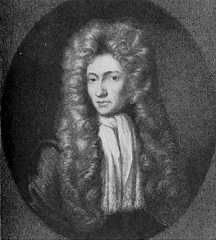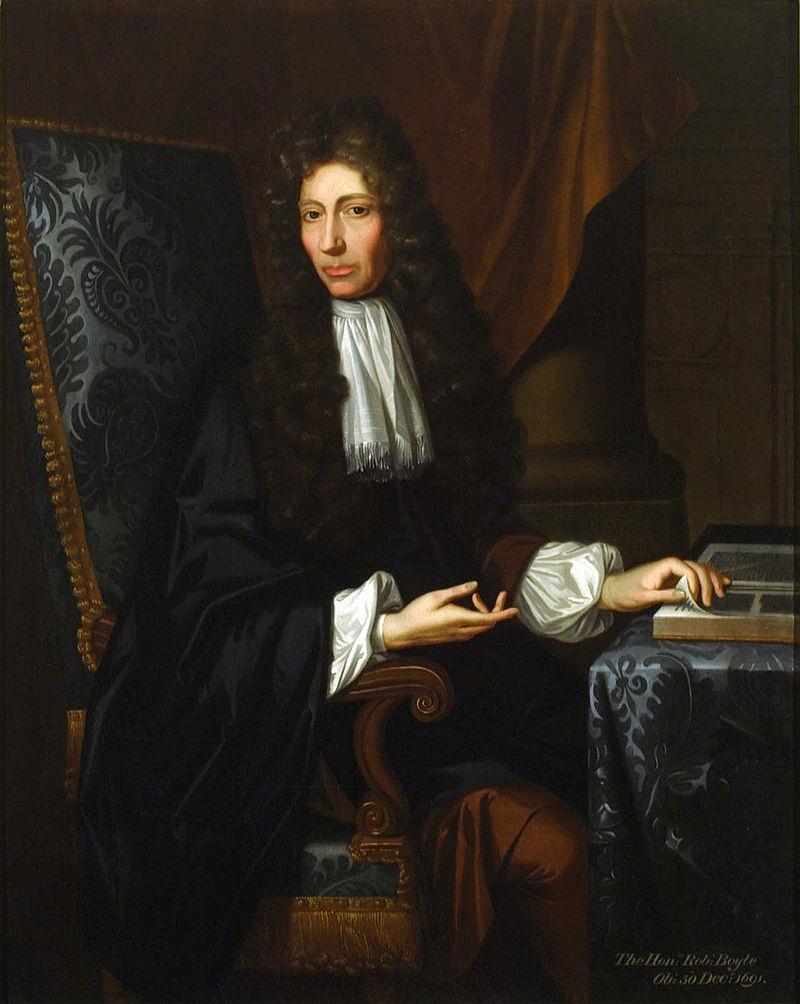 Robert Boyle (1627-1691)
Robert Boyle (1627-1691)
Robert Boyle was an alchemist, though later his works earned him renoun in the area of natural philosophy.
In 1657 he read of another scientist's work with air, and over the next several years performed many experiments of his own.
He produced a 'pneumatical engine' and a book is later published describing his work and experiments. It was while defending his work agains one critic, Francis Line, that he first makes mention of what was later to become known as 'Boyle's Law' - that the volume of a gas is inversely proportional to it's pressure, though this hypothesis was originally put forth by another scientist, Henry Power, in 1661.
Though he also made great progress in many fields, 'Boyle's Law' is all that many people know of him. He studied hydrostatics and was the first person to describe decompression sickness (now often known as 'the bends'). He studied gems and crystals, electricity, cold, things that glow in the dark, and many other areas of science.
In 1661 he published, 'The Sceptical Chymist: or Chymico-Physical Doubts & Paradoxes', in which he hypothesized that matter was composed of atoms in constant motion and colliding with each other, resulting in all of the phonomena that we observe. He quite nearly describes our modern concept of the atom, when he says:
I now mean by Elements, as those Chymists that speak plainest do by their Principles, certain Primitive and Simple, or perfectly unmingled bodies; which not being made of any other bodies, or of one another, are the Ingredients of all those call'd perfectly mixt Bodies are immediately compounded, and into which they are ultimately resolved.
He believes that everything we see are compounds of these elements, even what we now know are actual elements, so his understanding is not completely modern; still, his work does a great deal towards modernizing the science of chemistry. For this reason he is considered the father of modern chemistry.
Boyle was a devout Christian, and wrote many theological works in addition to his work in natural philosophy. In his will left money to support a series of lectures defending the Christian religion.

 Robert Boyle (1627-1691)
Robert Boyle (1627-1691)